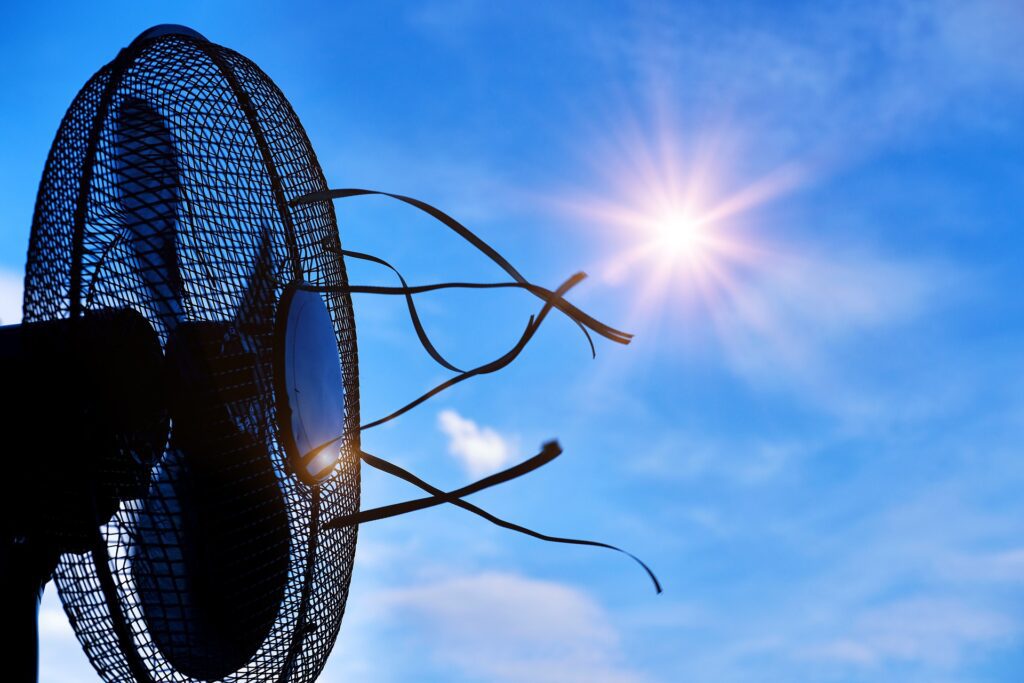Florida’s brutal summer is upon us, and that means heat exhaustion and heat stroke are real and present dangers every day. Florida’s high temperatures, intense sunshine, and ever-present humidity are a recipe for heat-related illnesses. Take our quiz on heat exhaustion and heat stroke and arm yourself with knowledge to prevent these life-threatening emergencies.
1.) What are conditions that create heat exhaustion and heat stroke?
- High temperatures
- High humidity
- Strenuous activity
- All of the above
2.) What of the following is NOT one of other factors that can contribute to heat exhaustion or heat stroke?
- Young or old age
- Gender
- Wearing excess clothing
- Dehydration
- Certain health conditions, medications, drugs, or alcohol use
3.) True or false? Heat cramps, signified by heavy sweating during intense exertion coupled with muscle pains or spasm, are a precursor to heat exhaustion.
4.) Which of the following is NOT a symptom of heat exhaustion?
- Heavy sweating and cold, pale, clammy skin
- Tiredness, weakness, headache, dizziness, and/ or fainting
- Hallucinations
- Muscle cramps, nausea, and/or vomiting
- Fast, weak pulse
5.) Which of the following are treatments for heat exhaustion?
- Cool down, either by moving to somewhere cool, covering your body with cool, wet cloths, or taking a cool bath
- Hydrating by drinking water, sports drink, or another non-caffeinated/ non-alcoholic beverage
- Loosening clothing
- All of the above
6.) When should you seek medical help for heat exhaustion?
- If you are vomiting
- If your symptoms get worse
- If your symptoms last longer than an hour
- All of the above
7.) True or false? Heat exhaustion will worsen to heat stroke, which is a medical emergency, if you don’t remove yourself from the situation and get cooled down and hydrated.
8.) In what ways does heat stroke differ from heat exhaustion?
- Your skin is hot, red, and dry or merely damp with heat stroke versus the heavy sweating of heat exhaustion
- With heat stroke, you have a high body temperature, 103⁰ or higher
- With heat stroke, your pulse is fast and strong
- With heat stroke, you suffer confusion and may lose consciousness
- All of the above
9.) Since heat stroke is a medical emergency, which of the following are things you should do for someone suffering from heat stroke?
- Call 911
- Move the person somewhere cooler
- Help lower the person’s temperature with cool cloths or a cool bath
- Do NOT give the person water or anything else to drink
- All of the above
10.) True or false? You should refrain from giving water or other drinks to someone with heat stroke because they are likely in an altered state, making it unsafe.
11.) True or false? Without medical intervention, heat stroke can cause organ damage and even death.
compiled by ERIKA ALDRICH / Resources: Information provided by The Centers for Disease Control and the Mayo Clinic
ANSWERS
- D. All of the Above. Heat exhaustion and heat stroke generally occur when strenuous activity and high heat and/ or humidity are combined.
- B. Gender. Gender does not affect heat exhaustion or heat stroke, but all the others do.
- True. Heat cramps can lead to heat exhaustion if you don’t stop the exertion/ exercise, cool down, and hydrate.
- C. Hallucination. Hallucinating is not a symptom of heat exhaustion, but all of the rest are.
- D. All of the above. The best treatment for heat exhaustion is to get somewhere cool, cool down, and hydrate.
- D. All of the above. You should seek medical treatment for heat exhaustion if you are vomiting, your symptoms worsen, or they don’t improve in an hour.
- True. Heat exhaustion is the precursor to heat stroke, which is a medical emergency.
- E. All of the above. When heat exhaustion becomes heat stroke, your body is no longer able to regulate your body temperature, meaning your internal temperature can become dangerously high.
- E. All of the above. Heat stroke is a medical emergency, so you should contact 911, move the person somewhere cool, and try to cool them through cool, wet cloths or a cool bath until EMS arrive.
- True. Someone who is suffering from heat stroke may not be able to safely drink water or other beverages.
- True. The body’s high internal temperature during heat stroke can damage organs and cause death if not treated.
